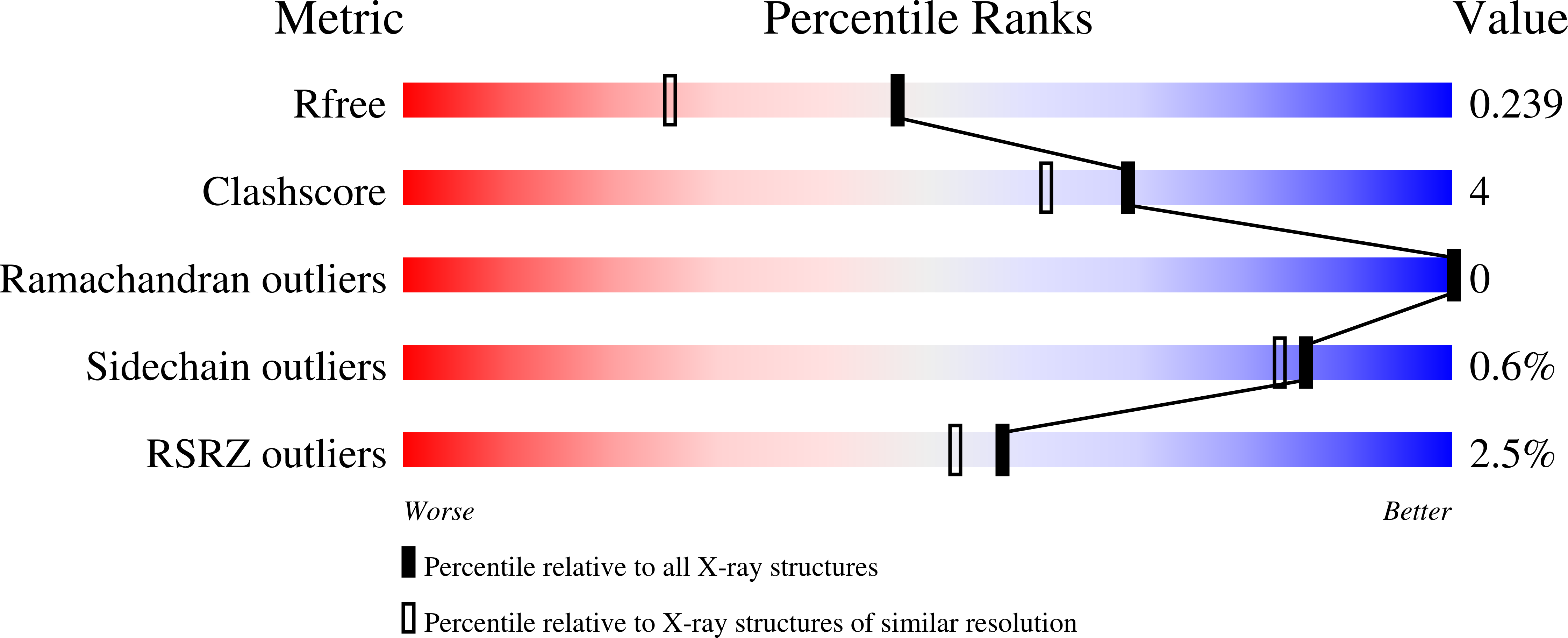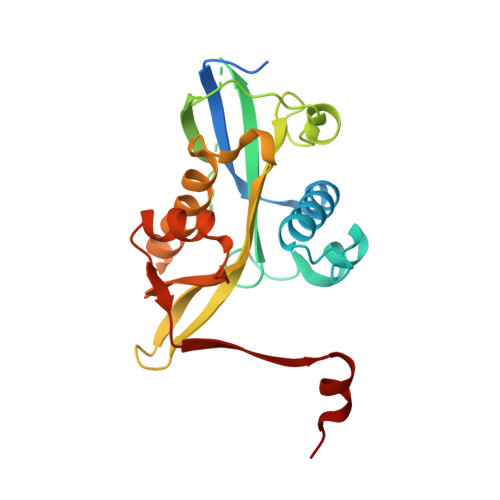Biochemical and structural basis of polyamine, lysine and ornithine acetylation catalyzed by spermine/spermidine N-acetyl transferase in moss and maize.
Belicek, J., Luptakova, E., Kopecny, D., Frommel, J., Vigouroux, A., Cavar Zeljkovic, S., Jagic, F., Briozzo, P., Kopecny, D.J., Tarkowski, P., Nisler, J., De Diego, N., Morera, S., Kopecna, M.(2023) Plant J 114: 482-498
- PubMed: 36786691
- DOI: https://doi.org/10.1111/tpj.16148
- Primary Citation of Related Structures:
7ZHC, 7ZKT - PubMed Abstract:
Polyamines such as spermidine and spermine are essential regulators of cell growth, differentiation, maintenance of ion balance and abiotic stress tolerance. Their levels are controlled by the spermidine/spermine N 1 -acetyltransferase (SSAT) via acetylation to promote either their degradation or export outside the cell as shown in mammals. Plant genomes contain at least one gene coding for SSAT (also named NATA for N-AcetylTransferase Activity). Combining kinetics, HPLC-MS and crystallography, we show that three plant SSATs, one from the lower plant moss Physcomitrium patens and two from the higher plant Zea mays, acetylate various aliphatic polyamines and two amino acids lysine (Lys) and ornithine (Orn). Thus, plant SSATs exhibit a broad substrate specificity, unlike more specific human SSATs (hSSATs) as hSSAT1 targets polyamines, whereas hSSAT2 acetylates Lys and thiaLys. The crystal structures of two PpSSAT ternary complexes, one with Lys and CoA, the other with acetyl-CoA and polyethylene glycol (mimicking spermine), reveal a different binding mode for polyamine versus amino acid substrates accompanied by structural rearrangements of both the coenzyme and the enzyme. Two arginine residues, unique among plant SSATs, hold the carboxyl group of amino acid substrates. The most abundant acetylated compound accumulated in moss was N 6 -acetyl-Lys, whereas N 5 -acetyl-Orn, known to be toxic for aphids, was found in maize. Both plant species contain very low levels of acetylated polyamines. The present study provides a detailed biochemical and structural basis of plant SSAT enzymes that can acetylate a wide range of substrates and likely play various roles in planta.
Organizational Affiliation:
Department of Experimental Biology, Faculty of Science, Palacký University, Šlechtitelů 27, Olomouc, CZ-78371, Czech Republic.

















